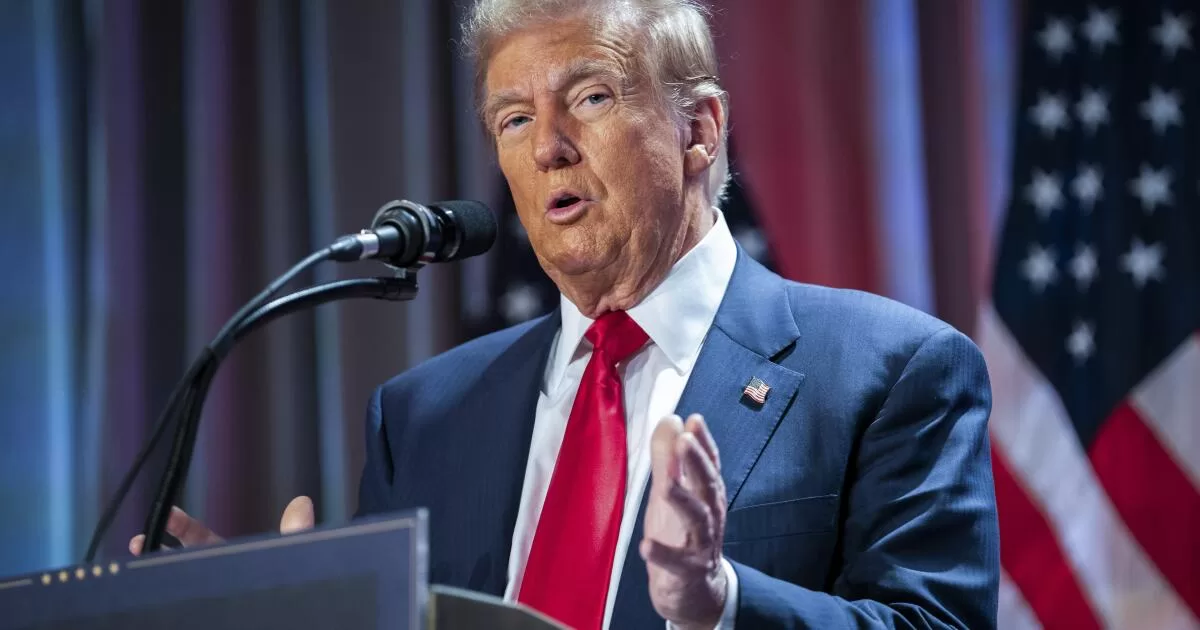President-elect Donald Trump has chosen health economist Dr. Jay Bhattacharya, a critic of pandemic lockdowns and vaccine mandates, to lead the National Institutes of Health, the nation’s leading medical research agency.
Trump said Bhattacharya, a 56-year-old physician and professor at Stanford University School of Medicine, will work in cooperation with antivaccine activist Robert F. Kennedy Jr., his pick to lead the Department of Health and Human Services, “to direct the Nation’s Medical Research, and to make important discoveries that will improve Health, and save lives.”
“Together, Jay and RFK Jr. will restore the NIH to a Gold Standard of Medical Research as they examine the underlying causes of, and solutions to, America’s biggest Health challenges, including our Crisis of Chronic Illness and Disease,” Trump wrote in a statement Tuesday evening.
The decision to choose Bhattacharya for the post is yet another reminder of the ongoing impact of the COVID pandemic on the politics on public health.
Bhattacharya was one of three authors of the Great Barrington Declaration, an October 2020 open letter maintaining that lockdowns were causing irreparable harm.
The document — which came before the availability of COVID-19 vaccines and during the first Trump administration — promoted “herd immunity,” the idea that people at low risk should live normally while building up immunity to COVID-19 through infection. Protection should focus instead on people at higher risk, the document said.
“I think the lockdowns were the single biggest public health mistake,” Bhattacharya said in March 2021 during a panel discussion convened by Republican Florida Gov. Ron DeSantis.
The Great Barrington Declaration was embraced by some in the first Trump administration, even as it was widely denounced by disease experts. Then-NIH director Dr. Francis Collins called it dangerous and “not mainstream science.”
Bhattacharya’s nomination would need to be approved by the Senate.
Trump on Tuesday also announced that Jim O’Neill, a former Health and Human Services official and Silicon Valley investor, will serve as deputy secretary of the sprawling agency. Trump wrote that O’Neill “will oversee all operations and improve Management, Transparency, and Accountability to, Make America Healthy Again.”
O’Neill is a longtime associate of billionaire entrepreneur Peter Thiel, one of Trump’s leading backers from the tech industry. Thiel and O’Neill co-founded Mithril Capital Management, a venture fund that invests in medical technology and other startup companies. O’Neill previously served in HHS under George W. Bush and was considered to head the Food and Drug Administration during Trump’s first term. He has expressed disdain for federal regulation, including FDA’s approach to regulating emerging drugs and other technologies.
O’Neill also worked on some of Thiel’s signature projects, often reflecting his libertarian philosophy.
He served on the board of a Thiel-funded nonprofit that aimed to develop man-made islands that would float outside U.S. territory, allowing them to experiment with new forms of government. He also helped form and run the Thiel Fellowship, which awards $100,000 to young entrepreneurs who want to leave school to pursue a business or scientific venture.
O’Neill is the only one of Trump’s health picks so far who brings previous experience working inside the Health and Human Services bureaucracy. Trump’s previous choices to lead public health agencies — including Kennedy, Dr. Mehmet Oz for Centers for Medicare and Medicaid Services administrator and Dr. Marty Makary for FDA commissioner — have all been Washington outsiders who are vowing to shake up the agencies.
Bhattacharya, who faced restrictions on social media platforms because of his views, was also a plaintiff in Murthy vs. Missouri, a Supreme Court case contending that federal officials improperly suppressed conservative views on social media as part of their efforts to combat misinformation. The Supreme Court sided with the Biden administration in that case.
After Elon Musk acquired Twitter in 2022, he invited Bhattacharya to the company’s headquarters to learn more about how his views had been restricted on the platform, which Musk renamed X. More recently, Bhattacharya has posted on X about scientists leaving the site and joining the alternative site Bluesky, mocking Bluesky as “their own little echo chamber.”
Bhattacharya has argued that vaccine mandates that barred unvaccinated people from activities and workplaces undermined Americans’ trust in the public health system.
He is a former research fellow at the Hoover Institution and an economist at the RAND Corporation.
The National Institutes of Health, which falls under the Department of Health and Human Services, has a $48-billion budget that funds medical research on vaccines, cancer and other diseases through competitive grants to researchers at institutions across the nation. The agency also conducts its own research with thousands of scientists working at NIH labs in Bethesda, Md.
Among advances that were supported by NIH money are a medication for opioid addiction, a vaccine to prevent cervical cancer, many new cancer drugs and the speedy development of mRNA COVID-19 vaccines.
Johnson writes for the Associated Press. AP writers Jill Colvin, Amanda Seitz and Matthew Perrone contributed to this report.
